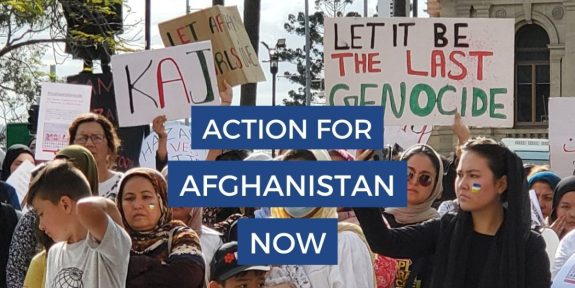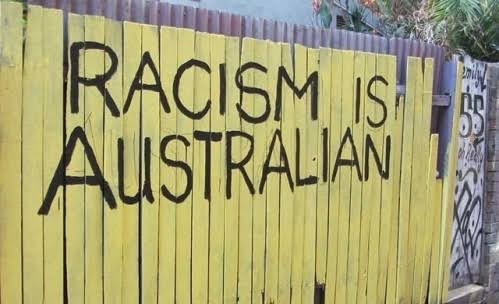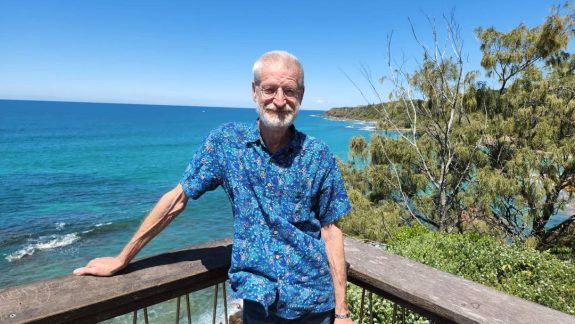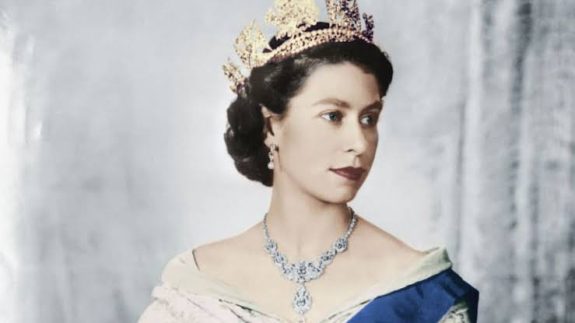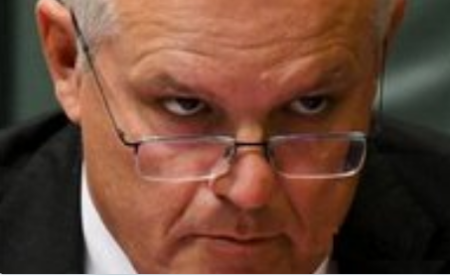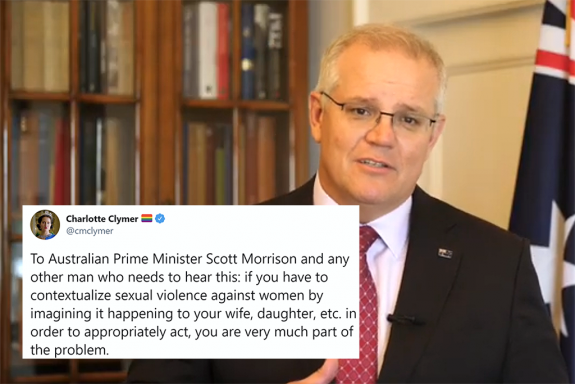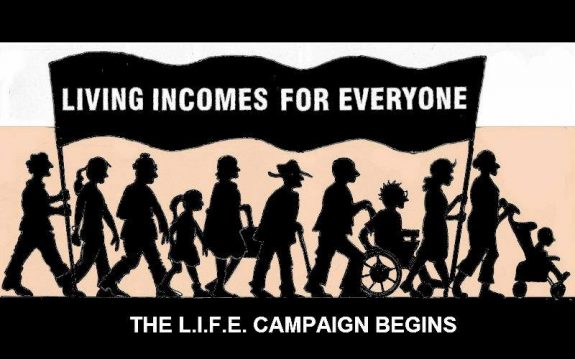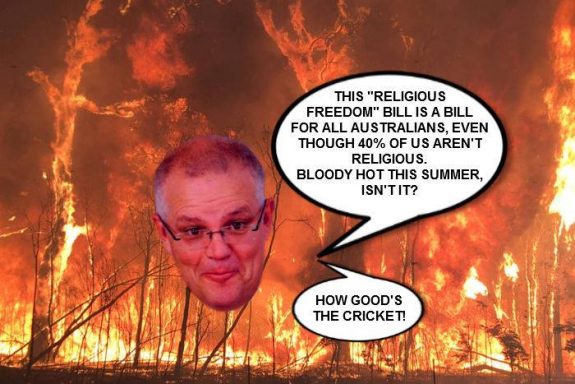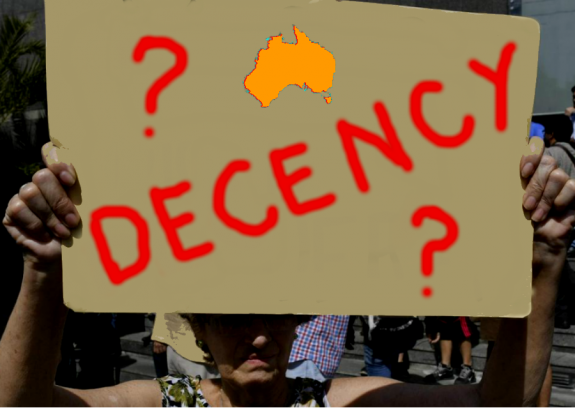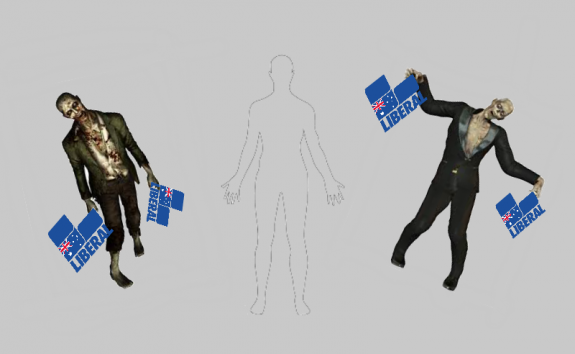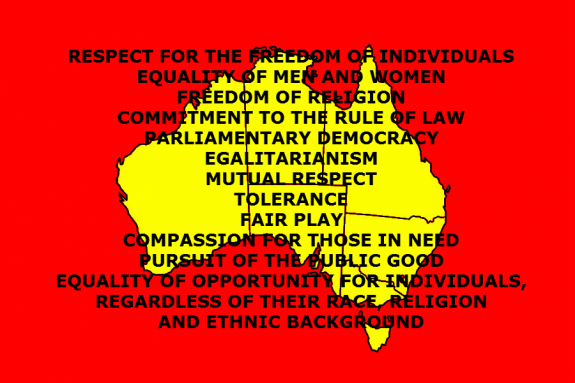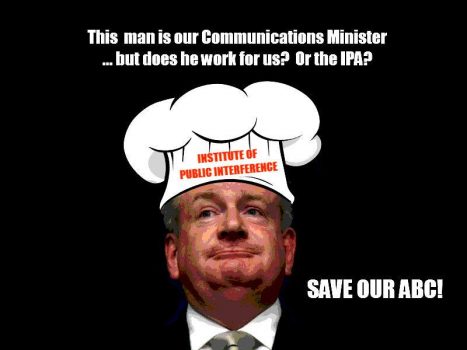Listening to Loz Lawrey – #1 of the Friends Conversing on a Verandah Series
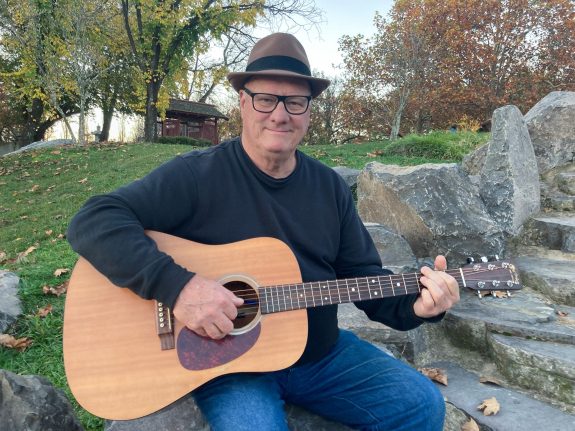
(Setting the scene – recently two friends, Loz Lawrey and Keith Davis, sat on Keith’s verandah and recorded their conversation. They wanted to capture the ‘now’ of their interaction. That conversation, by agreement, ended up morphing into two separate and delightfully different audio interviews. Nothing was pre-planned and both friends had quite different styles of self-expression. The questions and responses were totally free-form and in the moment. Here is the transcript of Loz’s interview with Keith asking the questions and Loz responding to them … Keith’s interview will follow on Thursday.)
Loz, why music in your life, why not woodwork?
Actually Keith I do both. Look, I grew up with music. My family had a big record collection and I just have fond memories of lying on the living room floor. I received messages of all sorts from folk musicians like Peter Paul and Mary, and my parents were folk music fans at the time and they sort of passed that love on to me, and so it was listening to all those tunes and realising that music can tell stories and make you feel things, and I guess that’s where it all started.
Yes, well the other night over dinner you sang a song about India, which certainly brought up feelings/memories in my friend who had joined us for the meal (and who had travelled there). Even though I didn’t travel on that part of the hippie trail in the old days, I never got to India, your song did give me a feeling, a sense of what it was all about. Is that what you try to impart with your music, to evoke feeling in other people?
I heard my music can do that and have that impact. I don’t actually set out to do it. You write a song.You’re telling a story. Something’s triggered you to do it. Yes in my case, that song India was just remembering a road trip I’d done when I was 21 years old. I was living in London as a student and it was time to head back to Australia. And I decided I wanted to do some travelling on the way. And there was a well-known, what they called the hippie trail, a well-known route from England through the Middle East to India, that many hippies and vagabonds used to follow at the time. And I heard a lot about it while I was living in London and became more and more interested in following that route.
And at the same time I was trying to find my own place in the world and I was in a sense on a spiritual search. I’d already figured out Christianity somewhat, And I’d had an interest in other religions. I’d actually read up a bit about Buddhism and I was interested in what religions had to offer, in terms of revelations about human existence and our place on the planet and our place in the universe in a sense. And I read a book called Be Here Now, and I think I’ve told you about that, written by an American who went to India and really had his mind blown by the change in culture and the focus on spirituality that you find in countries like India, particularly in India, where it’s a greater part. It’s a much less materialistic place than the western world I’d grown up in, you know, Australia, England.
And what’s interesting, you said your family was a diplomatic family.
Yeah, that’s right.
So you’re exposed from an early age to travel, different cultures, different ways of thinking?
That’s right. That’s right in a way. We lived in Washington for three years when I was very young, when I was a baby, and we would periodically come back to Australia, but my father was posted to other countries, after Washington it was Indonesia, he was working in the embassy in Jakarta for a couple of years, and then we went back to Australia again, and then after that France for four years, and in every posting he sort of rose through the ranks in a sense. And once we’d been back from France, I had just done my first year of high school by then.
So we came back for a year to Canberra, and I went to a public school there, and then he was posted again, he got his first ambassadorial post posting to Cairo. And that’s the point where I was put into boarding school, because the advice at the time was that you don’t take your kids, you put them in boarding school. So I spent the next four years in a boarding school in Canberra.
And … Was it a secular or…?
No, well it was a Church of England boarding school, it was … what we’d now call an Anglican boarding school, and the religion was definitely part of it, I mean we had chapel every morning and evening, quite a brief session, and we had to endure an hour in the morning and an hour in the evening, every Sunday, every day of chapel, and hymn singing, and services, and listening to endless sermons and so forth. But it was just, you know, to the kids, it was just part of the wallpaper in a sense, it was just how things were done, and it wasn’t, you know… I mean I was slightly intrigued by it all, but never felt part of it.
In fact my parents were non-religious, and I actually had to go and get baptised to actually… to be accepted in the school, and I’ve never forgotten this afternoon, going to this chapel with my mother and her standing there rolling her eyes, well… well this chap threw water on me and mumbled the various things, and then declared me baptised at the end of the process, you know.
You do strike me as a secular man, perhaps a spiritual man, but not a
religious man.
I’ve always seen religion as something ultimately evil, if I dare say that, because of the way young people are brainwashed by their parents to accept a certain world view, you know, involving worshipping a deity and judging others. It’s that judgemental side of religion I really hate, we’re called non-believers, or considered lesser, or other. And I do consider myself a spiritual person because I spend a lot of my life trying to understand my own essence.
And yet I am a secular person because I do not subscribe to any creed or faith, you know. I really believe we’re all on our own search and on our own journey, and we all come to our own conclusions, and hopefully we all develop a lifestyle that reflects our core perspective, if you like. And ultimately, I just think human beings have an amazing capacity and potential to, well, I mean, I don’t understand science but I am amazed at scientists and their ability to analyse the universe.
I’m not putting this very well, but in myself, I know I’ve always wanted completion, I was obsessed with it from a young age, from leaving school, partly because I felt a bit lost. I’ve always wanted to find some sort of completion, and then over the years, through reading about Buddhism and so on, I realised there’s a concept of self-realisation that’s out there. There’s a path one can pursue to actually realise and achieve that. And I guess in my own way, I’ve been trying to do that.
What that is, I mean, I have no real vision of, does the world explode in blinding light? I don’t know. Do I become some super being? I doubt it very much. But to me, self-realisation or self-actualisation is really coming to peace with oneself, coming to know oneself, to feel an acceptance of oneself, and to banish self-doubt. I remember when Mahatma once said, I would rather have a bullet than a doubt in my mind. Because really, it’s that doubt that destroys us, our self-doubt, and the doubt that others inflict on us, through their judgement and the feedback they give us, or the criticism they use, you know.
And I guess what I aspire to in the world is to be a good person, a person who doesn’t harm others, who treats others with respect, basically.
Which leads me into another question. To you, what is love? What is your concept of what love is?
Well, that’s a big question! I grew up listening to a lot of pop songs about love, that’s for sure. And that kind of love is really about the love between men and women, or basically these days, you’d say, between two human beings. And yet, in a way, I feel like, before anyone can love, we have to learn to love ourselves. We can be love. We can feel love. Others can treat us with love, and we can feel that, and feel the warmth and the embrace of that. But I feel at the same time, we have to not love ourselves in some egotistical way, but come to understand ourselves. It’s only then we can really truly love others, and feel the love for others.
I guess, in a sense, it’s something we’re always developing a sense of, it is something we’re always working on because we’re always trying to understand each other. I’m still not defining love here. It’s a hard thing to define. We all know what it is. I really feel like they say love makes the world go round. In a way, there is something called love that is the kernel. It’s something that lies at the heart of human life, at the heart of our humanity. We have a capacity to feel love for others, to demonstrate love by how we treat them. As the song says, love is a wonderful thing. As much as we have light and dark, cold and hot, we also have love, and we have hate.
Where do you think hate comes from? What is the deep world that hate comes from?
It’s a deep well of ignorance, I believe. A black pit.
And how does hate develop in your opinion? I’ll circle back to political hate later.
It really develops through fear. Hate is really the other side of the coin to fear. Fear of others, fear of the unknown, fear of difference, the type of fear behind classic racism, that hatred of people of other appearance or skin colour, hatred of other cultures. It’s all really founded in a lack of understanding.
We hear so often about people who have a fear of immigrants, and yet when the immigrants arrive and they get to know them, they realise they’re just like us. That’s why I’ve always felt that every school curriculum should have an overseas trip as part of it. Like kids should be sent overseas as part of their school education to experience other cultures that are different to if you live in a Western culture like Australia. A school trip to India, to the Middle East, to Indonesia, to Japan, to anywhere other than here. So the children can realise that it’s not all about us and our culture, that humans exist in many forms and have many varying societies around the globe.
And yet there’s a point where we are all the same, right at the essence of all of us. And that’s, I guess that’s what anyone in the spiritual search is seeking, you know, is that kernel, that inner truth.
That if we were all exposed to different cultures, different ways of being, that the level of judgement of the other would lessen?
It would lessen. Well that’s my personal belief, maybe wrong, but there’s a broadening
advantage to try. And I feel like the fact that my parents exposed me to all these different cultures, even in boarding school once a year I’d travelled to visit them at Christmas and I would land in Cairo and I would meet Arabic people and I would, I would get some understanding of their culture. I would see our servants fasting for Ramadan and I would learn what that was. And I would, you know, and my travels through the Middle East, that experience, it taught me a lot about the warmth of many of those cultures and the hospitality visitors receive, are greeted with. And I would come back to Australia and always feel a little bit sometimes like a stranger in a strange land.
You know, I did go back and live in London for a couple of years, but since that road trip from which I returned in 1974, I’ve really been in Australia since then, but I’ve never felt fully quite part of our culture here in one way, even though I speak with an Australian accent and so forth.
You almost beg this question. What time and place do you live in? What kind of world do you live in?
Well, I try to live in the present, totally in the present. I’m very bad at planning, looking ahead, you know. And really, I’ve really had an awareness ever since I read that book Be Here Now, which really, and the message of that book really was, life happens in this moment. In fact, I wrote a song about it on my last CD called Right Now, and it’s about how this is where life happens, right now, right here, and it’s never going to happen anywhere else. And John Lennon referred to this, that life’s what happens while you’re busy making other plans. We can think about the past, but it’s gone, It’s slipped through our fingers already. And the future’s an unrevealed secret that lies ahead. But we’re here in this moment where we both are sitting now, and we’re experiencing this moment, and this is where both our lives are happening, right now.
If you had to, which you don’t have to, but I’m asking you to, if you had to pick two people who have inspired you the most, who would they be?
That’s a really tough thing, because there are many people, and to say who’s inspired me the most, I would find it very hard to identify them.
Certainly, I did spend quite a few years following Prem Rawat, who used to be called Guru Maharaji, who taught me a lot about self-awareness and meditation and self-knowledge, and showed me techniques to meditate that have brought me much peace over the years, and helped me to accept life as it unfolds and accept myself and my role in it.
Do you think that we can actually inspire ourselves?
I guess so. That’s something I’ve never really thought about. I mean, inspiration can come from so many sources, I guess, from others, from experiences we have, from movies we see, you know, from songs we hear, from stories we’re told. From living we’ve done. I find that a tough one to answer, Keith. I’ve never really thought of how that I might have inspired myself.
Okay, I’ll circle back to the earlier question about hate, specifically political hate. Where does it come from?
You mean hating our political opponents?
Yes, to define it down a bit more, why in the current era do we have so many people who hate and cannot accept political difference?
Wow! Well, I think ignorance is a big part of it. I think inadequate education is a part of it. I think there are so many things that play into this. I think social media plays into it. I think as technology evolves and we rely more and more on it, there’s a diminishment of people’s ability to think critically. There’s an acceptance of shallow perceptions that are being shared and that we inflict on each other.
The lack of critical thinking, I think, is at the core of it. Because it’s really quite an amazing skill, and if one is able to do that, it’s a life-enhancing thing. But if you can’t think critically, you’re really living a more superficial life, where it gets harder to tell good from bad and see the true value of things. I think of what’s happening in America at the moment, and it seems that right at the core of the problems there, the lack of critical thinking and the possible potential of civil war, and the total tribal division between Republicans and Democrats, the way the country is split almost in two, and the inability of the two sides to even… You know, it’s becoming harder and harder for the both sides to even communicate.
Political hate is, as you say, it’s everywhere now, and there’s a resurgence in every country and it’s quite frightening, I find. There’s the rise of fascism that seems to be occurring globally, and the rise of these really narcissistic sociopathic autocrats who have no regard for either human life or the rule of law, or a sense of decency, the sense of decency that civil society requires as its foundation. Yeah, so political hate, political hate leads to war, does nothing to unite us, and yet, as someone who’s definitely on the left side, if we’re going to talk about polarised politics, I definitely am on the left, and there is always this great temptation to hate those on the right, mainly through a frustration that I simply struggle to understand their thinking. It’s as if there are two kinds in political terms, it’s as if there’s two kinds of human beings, and some are wired one way and some are wired another. And due to that there’s two different circuitries. it’s almost impossible to find common ground, because your world views are totally different, you know what I’m saying?
Yes. As you know Loz I’m known for quite happily going off on tangents. So … what is a question that you would like to ask of yourself?
That’s too hard. Yeah. Well, there is this one. The basic one is who am I and what am I meant to be doing in this lifetime, you know? If there was a creator, what would he or she want me to be doing? How would they want me to live? I mean, at the end of the day, I think our questions are answered by our own inner feelings. So, we resolve those questions within ourselves by a basic sense of right and wrong, I believe.
I mean, I have lingering regrets of having offended people at different times in my life, and now looking back at my age, I would dearly love to meet those people. I’ve tried to contact some through Facebook even, but simply cannot find some of them. They don’t seem to be on social media, but I’d love to meet up with them and apologise for the slight I inflicted on them at the time, you know? Because that has left a lingering sense of shame.
I remember in second-year high school, I got into a fight. One of the first kids who welcomed me to the school became a mate, and for some reason, one recess, and I put this down to teenage hormones, it’s a pretty weak excuse, I know, but we ended up in a fistfight, and I kind of punched him out. And as I drove off from school on my bicycle at the end of the day, someone shouted, good fight, mate! And all I felt was this cringing sense of shame, because I knew in myself that I had done it for bad reasons. I really had no…this guy had done nothing to deserve this. And it was a seminal experience for me, because it was a life-changing moment. These are the life-changing moments, I believe, when we make a terrible mistake and hopefully learn from it and change and modify our behaviour.
And there are moments when I’ve been rude to people, and wish I could take it back now. And yet I remember those things, because there aren’t that many of them, but they’re there. And yet at the same time, these are the things I believe that help us grow and mature. And I mean, I guess I see human life as a trajectory. We’re born into the planet, we come into this light, and then we’re subjected to everything. We can be lucky, we can be grow up in a family that’s loving and considerate, or we can be really unlucky and grow up in an abusive situation. And some of those situations can persist for years.
And I have to say, I’ve been lucky in my own way, and yet I’ve had my own struggles, such as being left in boarding school, which I didn’t find easy. But I feel at the end of the day, whatever we go through, we learn from, it informs our future behaviour. And hopefully, over time, we become better people and better able to treat others with decency and respect, you know? Which I think is really what lies at the core of the human condition and what it demands that we do.
People use the word humanity, meaning empathy, meaning decency, meaning respect for others, and a desire to include others. The word humanity has wonderful connotations. We speak of inhumanity as everything bad, everything evil. People describe Putin’s war on Ukraine as an inhumane venture, and clearly it is to anyone who has a love of humanity. How can some humans treat each other so inhumanely? It makes no sense to me, but history tells us it’s always happened.
And at the core of all that aggravation and warmongering and genocidal behaviour, I believe, is a lack of understanding. I mean, I also believe religions have a lot to answer for because they basically mess with people’s heads. I think of the Crusades and other wars of religion, and the atrocities that are committed in the name of the Lord or God or modernity, and I mean, at the end of the day, how do religions thrive? They thrive on ignorance.
I just remembered … I’m supposed to be asking some questions but I was quite happily getting lost in your discourse. Loz, I did read your humorous, really humorous article on The Australian Independent Media Network about flicking spuds at a photo of the Queen. So, are you a Monarchist or a Republican?
Well, I don’t know what the best model for a Republic is. The best model for organising society, but I’m definitely not a monarchist because I really think the idea of kings and queens and people being set apart as being special in some way or superior in some way is crazy, basically. You know, I mean, we’ve always had kings and queens and emperors, and today we have one of the autocrats … it’s pretty obvious Trump’s always wanted to be a king and Putin’s behaving like he thinks he is one, and they managed to weasel themselves into positions where they nearly get away with it.
But I believe in egalitarianism. I believe in equal rights, no one is superior to anyone else. And that’s apart from all these things that give us an appearance of difference such as our level of education. At the end of the day, people are people, you know, any race, any culture, any indigenous group. We’re all part of the same human race, and we are all equal. And I wish societies around the world reflected that because most don’t. Most have social structures that put some at the bottom and some at the top and others in between. And, I mean, the very concept of middle class, governments are always trying to please the middle class, and then other more right-wing governments seem to favour the rich. I mean, there’s so much that plays into all this, our world order and the social structures that different countries have that are really a vestige of their past history, and an outcome of past events.
As a musician, as a singer, a songwriter, from your point of view, what’s the value of music in our lives?
Well, well, I think music’s a touchstone. It evokes feelings. It brings up feelings that are already latent within us, and it triggers them, hopefully good feelings often. It’s something like smell you know. Music can touch us. Songs tell stories, and we need stories. Stories are the way we share our understandings, our knowledge, our culture, whatever that is. It’s how we learn music. Music inspires dance, inspires smiles. Well, there’s just something about music. It’s another way of communicating, I believe.
Interviewers always try to have the last say but let’s turn that one on its head. The last say in this interview is your say.
Well, I’m not sure I really have any big say. I’m just another little ant on the global ant heap, you know. I guess I’d love to see more empathy in the world. I’d love to see more coming together, more unity. I hate, I just hate what people are doing to each other and what evil people are inflicting on others around the world. I hate the fact that we’re unable to solve issues of hunger and starvation in some countries.
I’m very worried about the world and about our race and our treatment of the planet. Sometimes I feel we’re on a terrible course that can, in no way, be good. I think there’s a sense, a sense at large that people have, that the world is in a terrible state. And yet we are the perpetrators and the instigators of that. What we do, everything we do, every tin can we throw out, every plastic bag we drop into the ocean does harm. And yet it’s hard to live in a way that doesn’t have those side effects, you know. I guess I just hope for a world where we get it together before it’s too late.
Like what we do at The AIMN?
You’ll like it even more knowing that your donation will help us to keep up the good fight.
Chuck in a few bucks and see just how far it goes!
Your contribution to help with the running costs of this site will be gratefully accepted.
You can donate through PayPal or credit card via the button below, or donate via bank transfer: BSB: 062500; A/c no: 10495969










